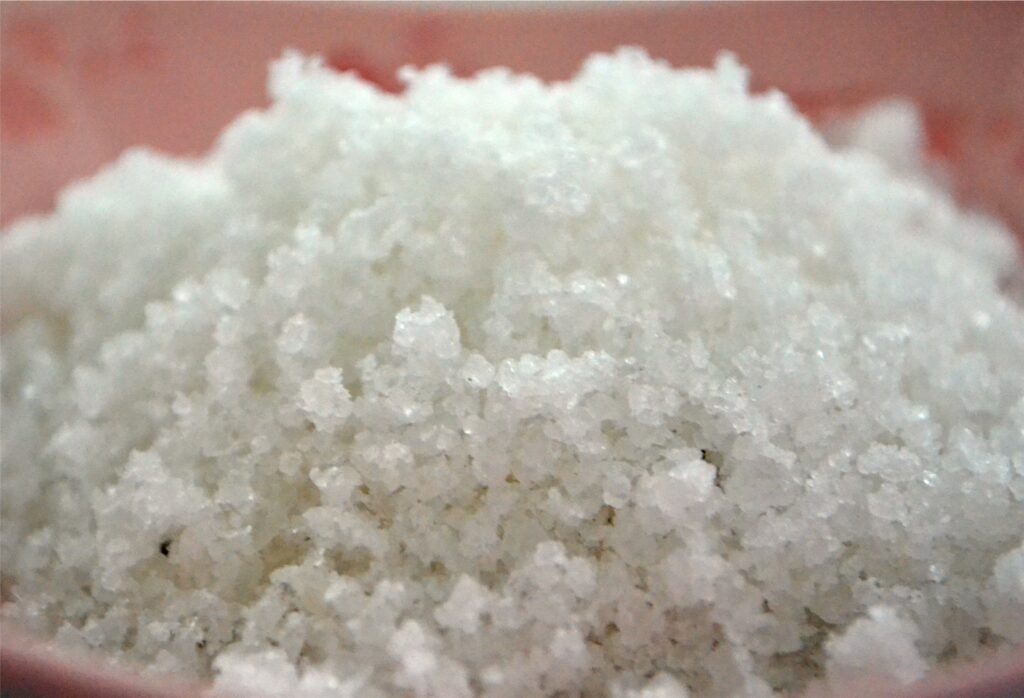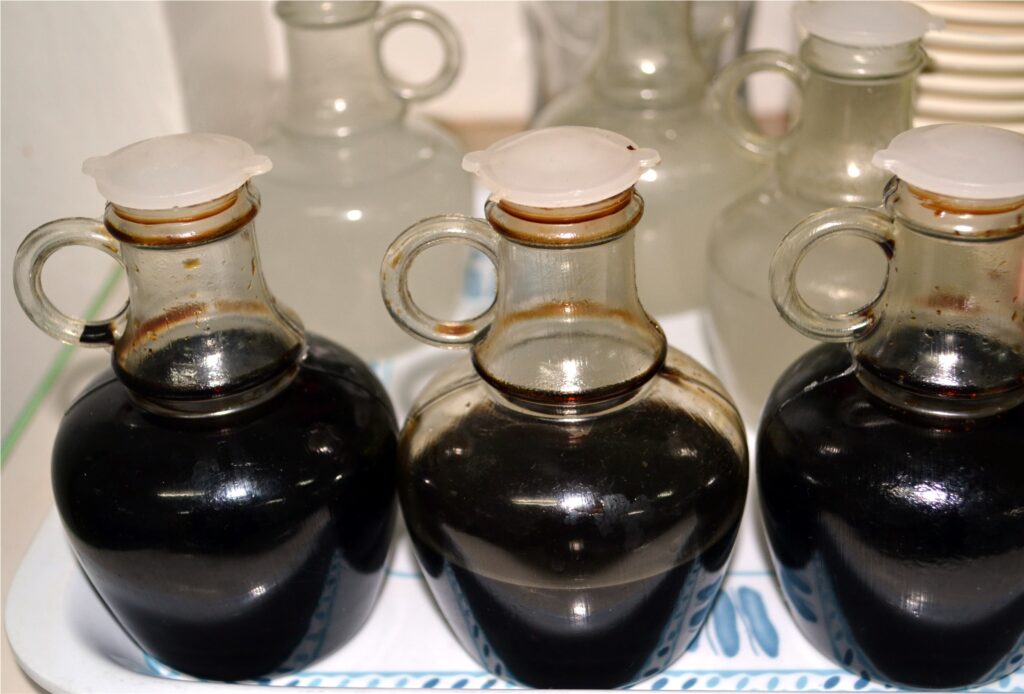Text and Photos by Henrylito D. Tacio
It is one of the ingredients in oral rehydration therapy which can save a child from diarrhea. It tastes like your tears. In search of it, a man discovered kissing. And it is found in most Filipino foods, including the celebrated bagoong. Yes, you’re right, it’s salt.
Although salt is needed in our body, taking too much of it is bad for our health. “There is convincing data showing that people who eat salty food excessively have a shorter life span than those who eat salty food less,” wrote Dr. Rafael R. Castillo, the health columnist of Philippine Daily Inquirer.
Dr. Castillo cited the study done in Japan. “In the 1950s, the incidence of strokes in Japan reached alarming levels, prompting the government to take urgent action. The salt intake of the Japanese was very high then, and through a concerted multisectoral program which included a lot of public education, the Japanese reduced their salt intake by half. This reduced the average blood pressure of the population, and the rate of stroke was cut down by 80 percent. The average lifespan in Japan also increased significantly.”
Dr. Castillo believed that what the Japanese did could also be done in the Philippines; more than 50,000 lives can be saved annually.
Sodium and chloride ions, the two major components of salt, are necessary for the survival of all living creatures, including human beings. It is involved in regulating the water content (fluid balance) of the body. Scientist Claude Bernard made that discovery in the mid-1800s, and he realized the fluid must contain the right amounts of sodium, chloride, and potassium to allow our cells to grow, work, and survive.
One hundred years later, researcher Homer Smith theorized that the cell-bathing fluid contains similar to the salty seas that bathed and nourished the earliest one-celled organisms.
Salt is so important that it has been mentioned in the Holy Bible several times. In the English translation of the King James Bible, there are forty-one verses that reference salt, the earliest being the story of Lot’s wife, who was turned into a pillar of salt when she disobediently looked back at the wicked cities of Sodom and Gomorrah (Genesis 19:26). When King Abimelech destroyed the city of Shechem (Judges 9:45), he is said to have “sowed salt on it” – a phrase expressing the completeness of its ruin. In the Sermon on the Mount, Jesus referred to his followers as the “salt of the earth.”
Ancient Greeks found out that eating salty food affected basic body functions such as digestion and excretion. This led to salt being used medically. The healing methods of Hippocrates (460 BC) especially made frequent use of salt. Hippocrates mentions the inhalation of steam from saltwater.
Today, people are taking salt more than they should have. The Geneva-based World Health Organization recommends that adults should only consume less than 2,000 milligrams of sodium or 5 grams of salt per day. “The average Filipino diet is nowhere near this level,” deplores Dr. Castillo. “It is around 12-15 grams per day.”

Table salt 
Soy sauce
“Limiting salt may be a good idea,” the editors of Super Life, Super Health point out. “It could affect your blood pressure someday, and it may affect other parts of your body, like your bones. But don’t make a huge effort to cut back to less than the recommended limit unless you have high blood pressure.”
A study conducted in the United States of more than 2,000 people showed that older adults with salty diets might have an increased risk of suffering a stroke. The findings, which were published in the journal “Stroke,” said that those who got well above the recommended sodium intake were nearly three times as likely to suffer a stroke over ten years as people who met guidelines recommended by the American Heart Association.
“High sodium intake was prevalent and associated with an increased risk of stroke independent of vascular risk factors,” wrote Hannah Gardener, a researcher at the University of Miami School of Medicine, who led the study.
Sure, you like your French fries covered with salt, but if you have hemorrhoids, salt can make it worse. Excess salt retains fluids in the circulatory system that can cause bulging of the veins in the anus and elsewhere.
High salt intake can also trigger migraine in some people. Migraine is a throbbing headache, usually occurring on only one side of the head. (A woman who had suffered from migraines for 16 years finally experienced relief when researchers from Denmark’s Odense University gave her 500 to 600 milligrams of powdered ginger whenever she felt a headache coming on. Within 30 minutes, her migraine would be gone.)
In a study conducted at the Department of Community Medicine of St. Thomas Hospital in London, researchers discovered that salt could have a life-threatening effect on people with asthma. “A strong correlation was found between table salt purchases and asthma mortality in both men and children,” reported the researchers. Buying the salt wasn’t killing people; eating it was.
Anyone who has passed a kidney stone can verify that this is an experience he never wants to repeat. Most stones are calcium-based, so it’s essential that you avoid excessive intake of table salt and condiments high in sodium. Salt restriction will help decrease the concentration of calcium in the urine. According to the US National Kidney Foundation, you should reduce your sodium intake to two to three grams per day.
Women with premenstrual syndrome (PMS) should avoid salt at all costs. “People don’t realize that foods with high salt content can contribute to water retention,” says Dr. Susan Clark, medical director of PMS and Menopause Self-Help Center in Los Altos, California.
Most snack foods and other processed foods are high in salt – and some fast-food meals can be extremely high. So, women with PMS should stay away from these foods. Before buying packaged and processed foods, be sure to read the labels and, whenever possible, choose fresh fruits and vegetables.
“We usually recommend cutting down on salt used in cooking and to remove the salt shaker on the table,” Dr. Castillo noted. “But these sources only constitute 20 percent of the salt one usually takes in. The bulk — around 80 percent — of the salt being consumed come from processed food and food we order in restaurants.”
For instance, some soups (and this includes instant noodle soups) contain more than 1,000 milligrams (mg) of sodium per cup. Pizza pies can have 400 mg to 1,200 mg per slice. So if one eats two slices, he or she has already exceeded the recommended daily sodium intake.
Health experts, however, warn that you should try to cut out salt from your diet completely. That would be dangerous! In fact, there are also good things about salt, health-wise. For instance, if you are suffering from a stuffy nose, why not try a saline solution? Here’s how to do it: Dissolve a teaspoon of salt in a pint of water, and then use a nose dropper to drop it in your nose. Gently blow your nose on a tissue.
Having gum pain? Try a warm saltwater rinse. “Take a few swigs of warm salt water and swish it between your teeth and gums,” advises Dr. Leslie Salkin, director of post-graduate periodontics at the Temple University of School of Dentistry in Philadelphia. “It has a general soothing effect. If you have an abscess, the salts will help draw it out and drain it.” He recommends one teaspoon of salt in a glass of lukewarm water.
Salt can also be used as the first line of defense against sore throat. While gargling won’t kill off the germs causing sore throat, it will moisturize and temporarily soothe the upper throat. While there are many possible gargles on the market, saltwater is as good as any, and it’s cheap.

